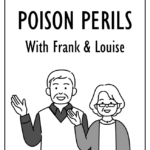What is cannabis?
Cannabis is a general term for drugs made from plants in the Cannabis genus. These drugs are often referred to as marijuana, pot, or one of dozens of other slang names.
Cannabis plants contain chemicals known as cannabinoids (cuh-NAB-uh-noids), which can bind to receptors in the human body, particularly in the brain. Scientists have identified more than 100 types of cannabinoid. The most notable of them is THC, short for delta-9 tetrahydrocannabinol (teh-truh-high-droh-cuh-NAB-uh-noll), which is primarily responsible for the psychoactive effects of cannabis—the “high.”
The remainder of this page primarily concerns THC.
THC is most prevalent in the leaves and flowers of Cannabis plants, and one of the most common ways to take in THC is by smoking these parts of the plants (joints, bongs, etc.). They are also used in baked goods such as cookies and brownies. With the legalization of medical and/or recreational cannabis in many states, it is increasingly common for producers to extract the THC or other cannabinoid from the plant using solvents. These extracts can be used in edibles, including baked goods, gummies, chocolates and other candies, many of them mimicking traditional candy. Extracts may also be used in e-cigarettes.
Studies about possible medical benefits of cannabis are ongoing. Currently the FDA has approved only a small number of medications containing cannabinoids. These are available only by prescription from a doctor for very specific conditions related to certain types of epilepsy, HIV/AIDS and cancer treatment. Maine, New Hampshire and Vermont have each approved medical marijuana programs that allow treatment of a wider range of conditions. However, research has not yet determined how safe and effective these uses of cannabis are.
Cannabis can be harmful to young children and pets who swallow it unknowingly. Children may be particularly drawn to edible products, such as brownies, cookies and candy.
Teens and adults who use cannabis may also experience unwanted symptoms, especially from high doses. This is particularly common with edible forms because the effects can be delayed. In many instances someone will take a second dose before the first one has time to take effect. Confusion about the appropriate dose size is also common.
Note: Synthetic marijuana products, such as K2 and Spice, are designed to mimic THC, but their effects can be very different. Learn about these street drugs on our synthetic cannabinoids page.





